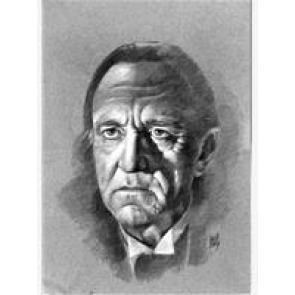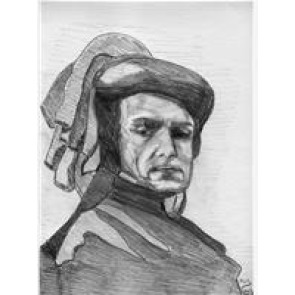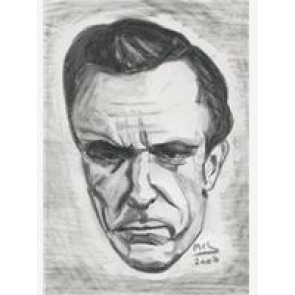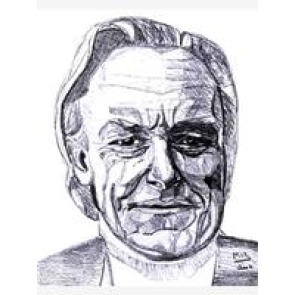ERIC PORTEREric Porter, who died from colon cancer on 15 May, 1995, was a distinguished actor best remembered for the rape scene with his faithless wife in The Forsyte Saga.
Porter played Soames Forsyte in the BBC’s serialisation of John Galsworthy’s tale in 1967.
The series made television history. It was watched by millions and lays claim to being the first British soap opera, even if it was based on a well-established piece of literature.
Mr Porter, however, would have seen himself as a stage actor, where he breathed life into many of the classics, often with a sombre character.
Eric Richard Porter was born on 8 April, 1928, in Shepherd’s Bush, London, the son of Richard Porter, a bus conductor, and his wife, Phoebe Elizabeth, née Spall. He was educated at elementary school and at Wimbledon Technical College.
His family hoped he might become an engineer, but a young Mr Porter wanted to develop the acting talent he developed at school. His first role was in Twelfth Night at the Arts Theatre, Cambridge, in 1945 and then he joined the Shakespeare Memorial Theatre.
In 1946 he joined Sir Lewis Casson’s company, and later toured with Sir Donald Wolfit. His National Service as an engine fitter in the RAF in 1948 was cut short by a nervous breakdown. Mr Porter spent some time in hospital.
Back in civilian life, he gained further experience with two and a half years at the Birmingham Rep, which he considered the best company in the country. Mr Porter moved to London where he made a strong impression at the Lyric Hammersmith, playing Bolingbroke to Paul Scofield’s Richard II.
His first top billing came with title roles in Uncle Vanya, Volpone and King Lear, then the male lead in Peter Ustinov’s comedy Romanoff and Juliet in the West End. His 1959 performance as Rosmer in Rosmersholm at the Royal Court in 1959 won the Evening Standard best actor award.
Soon came The Forsyte Saga, all 26 parts of it. It is difficult to overestimate its impact on the British way of life. Vicars insisted its Sunday evening spot had emptied the churches.
Mr Porter played Soames Forsyte, the property-conscious solicitor ageing process was a work of art. With hardly a speck of make-up, Mr Porter added years to his character. The rape of his wife Irene was the Monday morning talking point all over Britain.
Mr Porter was feted everywhere. But instead of becoming the overnight celeb, Mr Porter instead turned to more work and won many fine roles, including Cyrano de Bergerac, a BBC1 Play of the Month in 1968, the two heroes in Rattigan’s Separate Tables, spooky doctor in the Hammer horror Hands of the Ripper; and even as guest on the Morecambe and Wise Show.
But for a long time from the late 1970s he was rarely on stage or screen. Mr Porter, sombre as an actor, was a quiet man in real life. He liked isolation and admitted an “inability to relax completely in personal relationships”. He became increasingly reclusive and rumours began that he had joined a religious order and entered a monastery.
He re-appeared in 1988 with an acclaimed performance at the National Theatre as Big Daddy in Cat on a Hot Tin Roof , for which he won the Evening Standard best actor award again.
The next year he triumphed in another King Lear, directed by Jonathan Miller at the Old Vic, with Frances de la Tour and Gemma Jones as Regan and Goneril. His film career was sparse but notable successes include The Heroes of Telemark (1965), The Day of the Jackal (1973) and The 39 Steps (1978).
He also made an excellently evil Professor Moriarty opposite Jeremy Brett’s Sherlock Holmes in Granada Television’s The Adventures of Sherlock Holmes stories The Red-Headed League and The Final Problem , both in 1985. He never married.
Keep me informed of updates










